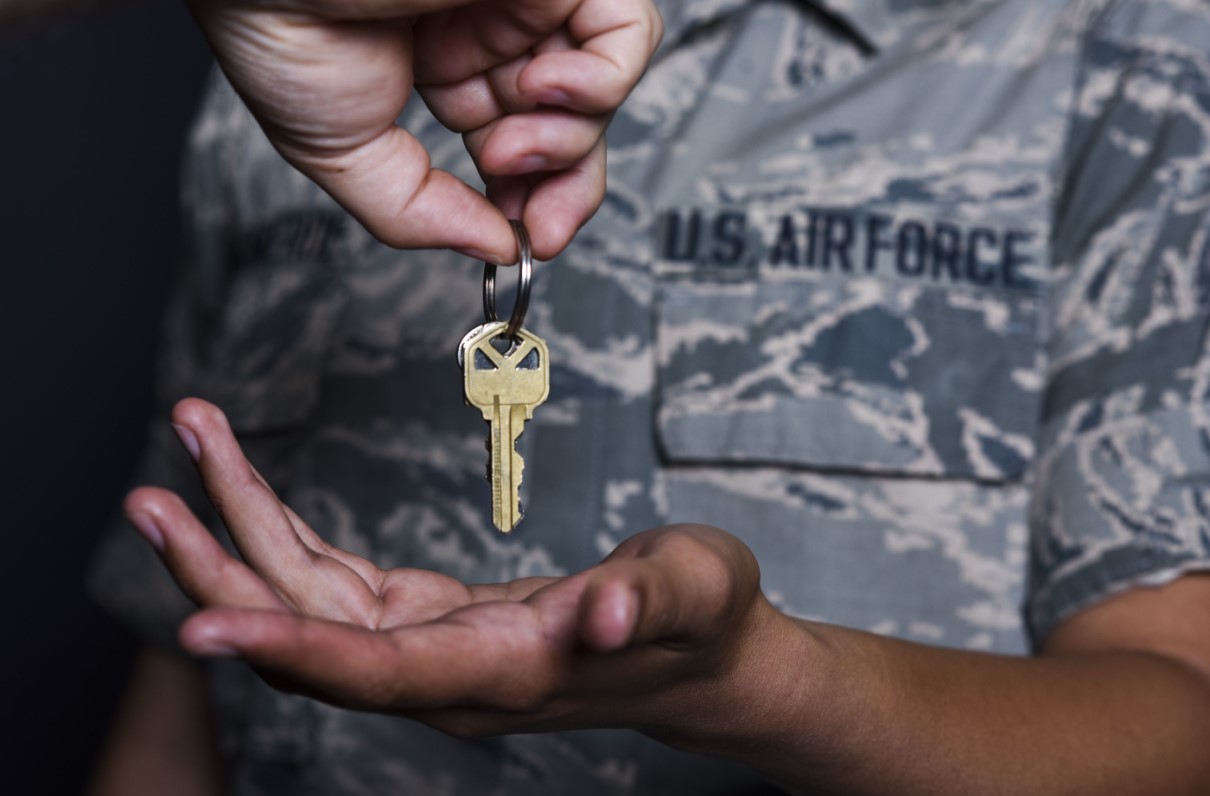Military families living in homes with reports of rodents, mold, and other health issues could soon be empowered to withhold paying their housing stipend to their property manager, thanks to proposed legislation backed by MOAA.
The Ensuring Safe Housing for Our Military Act would address healthy, safety, and environmental hazards at these privately managed homes on military installations.
[RELATED: News Reports Reveal Lead Paint, Mold, and Bad Air in Military Housing]
MOAA has heard from and worked with several military families who have complained about rodent infestations and mold, and attended a hearing last month where families shared their stories with lawmakers.
“Our association has been actively involved in making sure these military spouses were heard on this issue,” MOAA President and CEO Lt. Gen. Dana T. Atkins, USAF (Ret), wrote in a March 13 letter to the quartet of Democratic lawmakers who introduced the legislation -- California Sens. Dianne Feinstein and Kamala Harris, and Virginia Sens. Tim Kaine and Mark Warner. “This legislation is an important step in the right direction to hold both our government and public-private partners accountable for the conditions of the homes and the standards of services they provide.”
[Read MOAA's Letter Backing S. 703, and Send Your Own Letter of Support to Your Senator]
The bill, which has been referred to the Senate Armed Services Committee, includes the following provisions:
- BAH withholding. Should a hazard arise, a servicemember's Basic Allowance for Housing (BAH) could be withheld by the installation commander until a military housing official has inspected the issue and verified appropriate remediation has taken place … and the servicemember signs off on the arrangement. If a servicemember must leave the property for remediation, the housing company must pay all relocation costs.
- Fewer, fairer fees. Servicemembers don't have to pay a deposit or any fee or penalty related to ending a lease early - except for normal wear and tear. Contractors will have to reimburse servicemembers for damage to their private property if caused by a hazard.
- Contractor penalties. The secretary of defense will be able to withhold incentive fees to any contractor who persistently fails to remedy hazards.
- Common credentials. Standards will be created for health, safety, and environmental inspectors across services, including contractors, to ensure consistent inspection practices.
- Transparency for servicemembers. An electronic system will be established by the Defense Department so servicemembers can track and oversee work orders.
“We want all our servicemembers and their families to feel safe in their homes,” Atkins wrote to the senators.
Last month, lawmakers heard from three military spouses living in privately managed homes on military installations about vermin infestations and mold problems that led to hospital visits. Also testifying before Congress members were top leaders from the five largest private housing management companies - Balfour Beatty Communities, Corvias Group, Hunt Military Communities, Lendlease Corp., and Lincoln Military Housing.
Nearly all of the homes on military installations are privately managed after a 1996 deal that was meant to address concerns with run-down housing owned by DoD. The Military Housing Privatization Initiative leases homes to privately owned companies to manage and maintain.
Issues in homes were revealed through reporting from Reuters.
Amanda Dolasinski is MOAA's staff writer. She can be reached at amandad@moaa.org. Follow her on Twitter @AmandaMOAA.

